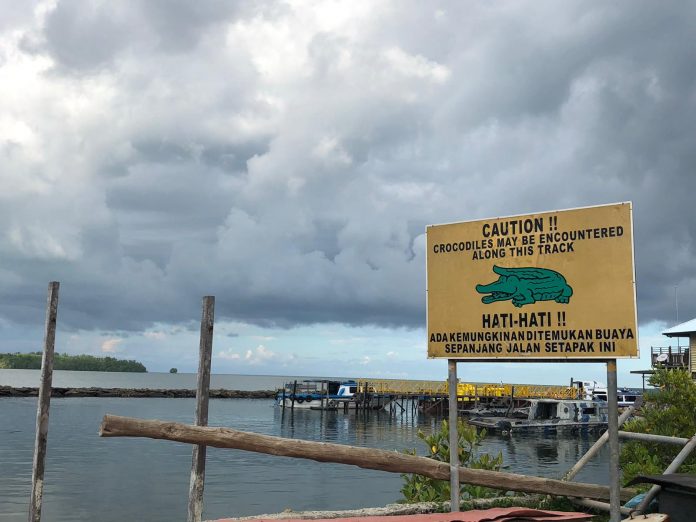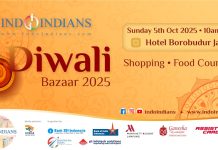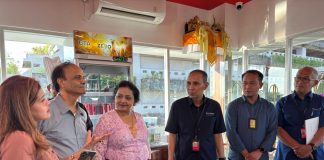Life in Borneo.
Borneo for many represents the idea of a strange unknown jungle teeming with exotic wildlife, minerals, untamed rivers and tribal people. For us, it was just home for about thirteen years.
After a hectic life in Mumbai- jobs, children, traffic, absconding maids and torrential rains, my husband was sent to Kalimantan on a transfer. I accompanied him and thus began a unique sojourn.
We were sent to Sangata located in East Kalimantan on the South China Sea. There we stayed in the company site called Tanjungbara, specifically built for the management personnel. We lived in a wooden house on stilts, perched on a hill with a view of the sea and surrounded by the rain forest. It was like permanently being in a tourist lodge, very picturesque. My nearest neighbor were a pair of fishing eagles that were raising their chick on an ironwood tree. Just outside our dining room was a jackfruit tree on which aggressive macaque monkeys would come to feed an occasionally an orangutan. I disliked the macaques who were thuggish and destructive but could gaze for hours on the orangutan whose round brown eyes seemed brimming with emotion. It was impossible to have a vegetable patch because of the marauding monkeys though I periodically did try.
All the expatriates and the top Indonesian managers stayed in Tanjungbara. This was an enclosed community with its own security gates, club, clinic, coffee shop, golf course tennis courts, swimming pools, a small grocery store and of course bars. The main town of Sangata was about 25 km away and between Tanjungbara and Sangata lay the coal fields of Kalimantan giving Sangata the reason for being a town after decades of being a small fishing village.
Tanjungbara – the residential site was very well laid out . Most importantly it had its own airstrip and helipad. Most of our exit and entry were in the tiny planes which could hold up to twenty two people. The other alternative was a nine hour journey to Balikpapan by car through tortuous winding potholed roads in order to get a Garuda flight from Balikpapan airport. Journeying through the jungle felt surreal though glimpses of the Mahakam river while passing Samarinda were uplifting.
The first day in, I got a taste of site living when I went out for a walk. As I strolled down the hill from my house, a couple of cars stopped to ask if they could drop me off somewhere. Unknown people waved and said hello. There was a general air of friendliness and help.
For some people though site living meant freedom from accepted norms. Spouses managed to cheat on each other with impunity and conversations in the coffee shop pool and bars were rife with who was doing what with whom.
Hierarchy was very strong, so wives of the same ranking officers would tend to congregate together, though in the early years, the ‘arisan’ or ladies gathering was open to all. Hash, or adventure trekking was more of an expat activity and one which I really enjoyed. Once a month, a family by turn, would make approximately a five km track through the jungle. They would lay it out with occasional markers. We would then follow the trail, scrambling up steep slopes, down narrow ravines, over rocks, across muddy tracks to the holy grail of a crate of cold beer/lemonade.
Many of the expat women would meet for coffee mornings, or a swim or to exchange recipes or do voluntary work for the school. I got involved with all the activities and till today these women from different countries, different age groups, religions are in touch with new stories and recipes. They came over to my house to learn some Indian cuisine, watch a Bollywood movie with subtitles and sometimes ask me to help out with school activities.
Living in such close proximity to wildlife creates unusual situations. There was once I was unable to leave my house as a snake was curled up near the door. My TV cable was used as a swing rope by monkeys so the reception would get fuzzy.
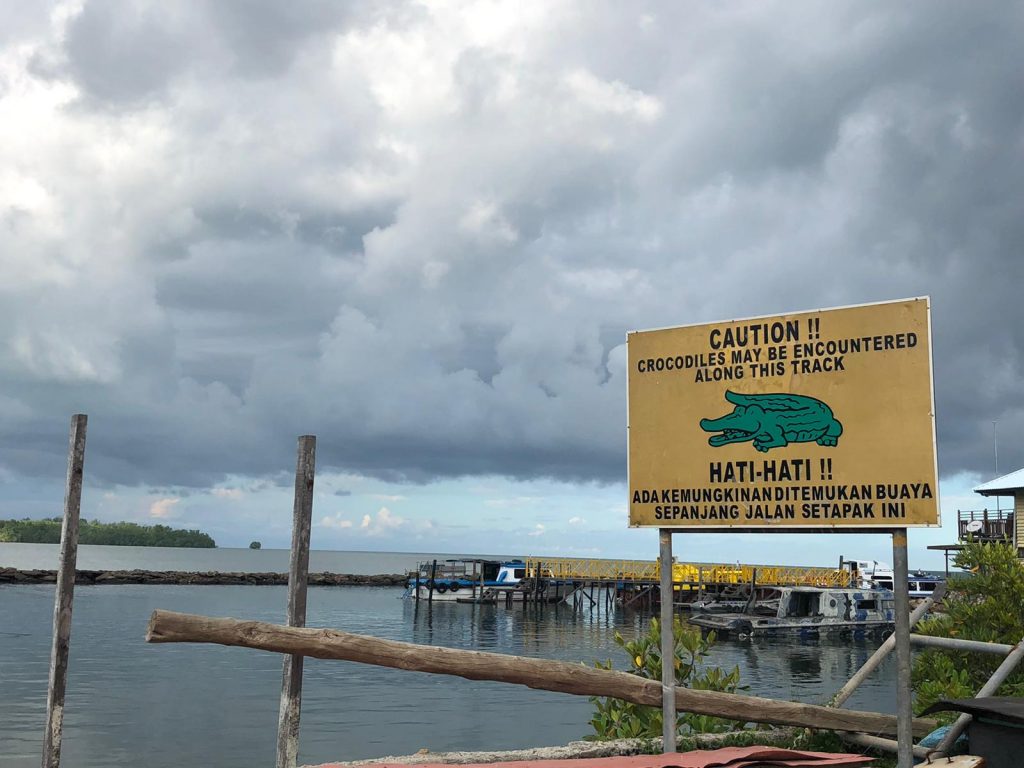
Near the Aquatic bar was this sign. Not a joke as one watchman was eaten by a crocodile.
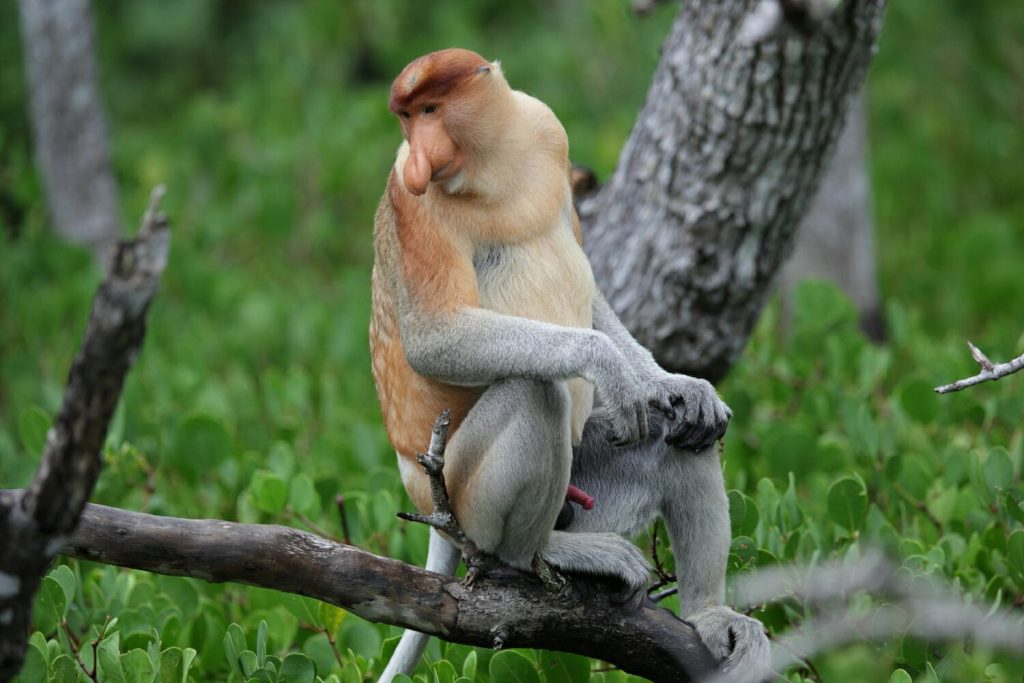
Photo Credit: Nivedita Mitra
Between our site and the sea were the mangroves which is habitat of the proboscis monkeys. Unique because of their potbelly and large nose, I never tire of seeing them.
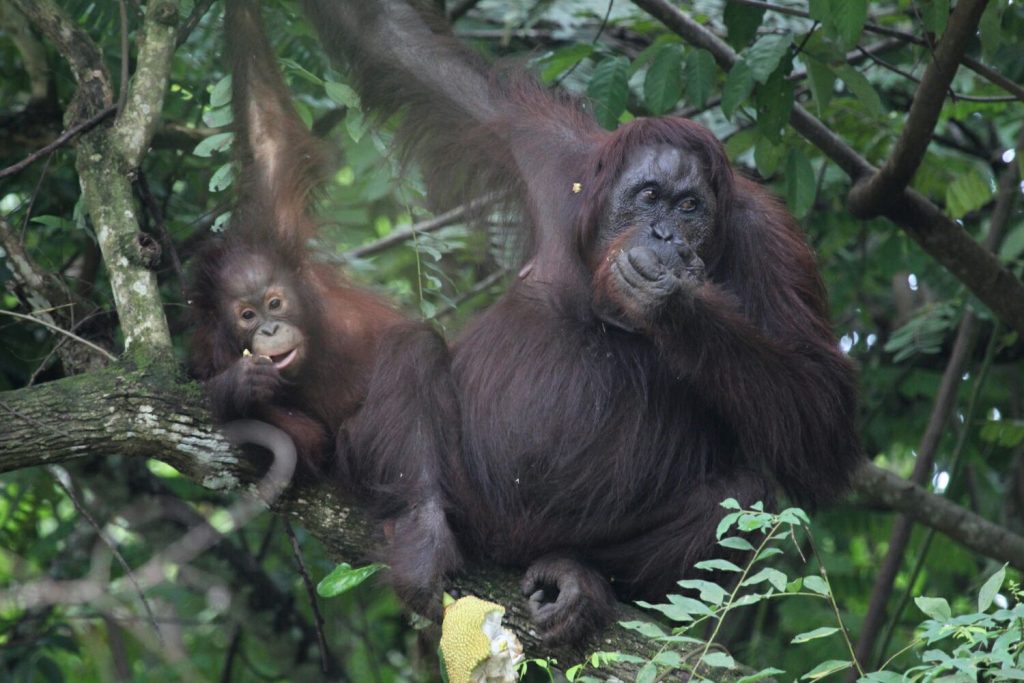
Photo Credit: Nivedita Mitra
Being able to see the orangutan in the wild is a privilege beyond description. The tenderness with which a mother cradled her baby, the long strong hands which could pluck fruit with such delicacy, the almost human like faces will stay with me forever…
In Mumbai, I was running on a treadmill, no time between work, home, raising children. Life gave me an opportunity to step off and enjoy my surroundings. For that I am always grateful.
by Nivedita Mitra


